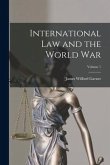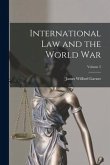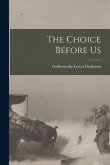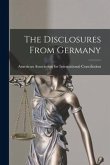Norman AngellThe Great Illusion; a Study of the Relation of Military Power to National Advantage
Andere Kunden interessierten sich auch für
Produktdetails
- Verlag: Creative Media Partners, LLC
- Seitenzahl: 404
- Erscheinungstermin: 26. Oktober 2022
- Englisch
- Abmessung: 234mm x 156mm x 21mm
- Gewicht: 562g
- ISBN-13: 9781015480780
- ISBN-10: 1015480780
- Artikelnr.: 66459586
Hinweis: Dieser Artikel kann nur an eine deutsche Lieferadresse ausgeliefert werden.
- Libri GmbH
- Europaallee 1
- 36244 Bad Hersfeld
- gpsr@libri.de
Sir Ralph Norman Angell (26 December 1872 - 7 October 1967) was an English Nobel Peace Prize winner. He was a lecturer, journalist, author and Member of Parliament[1] for the Labour Party. Angell was one of the principal founders of the Union of Democratic Control. He served on the Council of the Royal Institute of International Affairs, was an executive for the World Committee against War and Fascism, a member of the executive committee of the League of Nations Union, and the president of the Abyssinia Association. He was made a Knight Bachelor in 1931 and awarded the Nobel Peace Prize in 1933 Angell is most widely remembered for his 1909 pamphlet, Europe's Optical Illusion, which was published the following year (and many years thereafter) as the book, The Great Illusion. (The anti-war film La Grande Illusion took its title from his pamphlet.) The thesis of the book was that the integration of the economies of European countries had grown to such a degree that war between them would be entirely futile, making militarism obsolete. This quotation from the "Synopsis" to the popular 1913 edition summarizes his basic argument. He establishes this apparent paradox, in so far as the economic problem is concerned, by showing that wealth in the economically civilized world is founded upon credit and commercial contract (these being the outgrowth of an economic interdependence due to the increasing division of labour and greatly developed communication). If credit and commercial contract are tampered with in an attempt at confiscation, the credit-dependent wealth is undermined, and its collapse involves that of the conqueror; so that if conquest is not to be self-injurious it must respect the enemy's property, in which case it becomes economically futile. Thus the wealth of conquered territory remains in the hands of the population of such territory. When Germany annexed Alsace, no individual German secured a single mark's worth of Alsatian property as the spoils of war. Conquest in the modern world is a process of multiplying by x, and then obtaining the original figure by dividing by x. For a modern nation to add to its territory no more adds to the wealth of the people of such nation than it would add to the wealth of Londoners if the City of London were to annex the county of Hertford



![Select Treaties and Documents to Illustrate the Development of the Modern European States-system [microform] Select Treaties and Documents to Illustrate the Development of the Modern European States-system [microform]](https://bilder.buecher.de/produkte/66/66137/66137213m.jpg)




